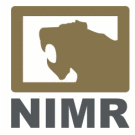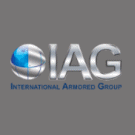| a | |||
Defence & Security News - United States |
|||
| |
|||
| Saturday, May 4, 2013 01:05 PM | |||
| North Korea is able to reach United States with new nuclear weapons according Pentagon report. | |||
North Korea's
progress in developing nuclear weapons that could reach the United States
depends on continued missile and nuclear tests, a Pentagon report said.
The annual report to Congress, presented Thursday, provided an overview
of North Korea's military threat and discussed the reclusive country's
progress toward developing a nuclear missile, CNN reported Friday, May
3, 2013. |
|||
 North Korea has recently unveiled the intercontinental ballistic missile Hwasong-13 which would have a maximum range of 9.000 km |
|||
The report didn't indicate how long defense officials believed it would take North Korea to develop a fully operational nuclear missile capable of reaching the U.S. mainland. The report characterized North Korea's ballistic missile program as "ambitious" and said "the pace of its progress will depend, in part, on how many resources it can dedicate to these efforts and how often it conducts tests." The report said that the type of long-range rocket North Korea launched in December to put a satellite in orbit "could reach parts of the United States if configured as an intercontinental ballistic missile [ICBM] capable of carrying a nuclear payload." The report added, however, that "a space launch does not test a re-entry vehicle [RV], without which North Korea cannot deliver a weapon to target from an ICBM." The launch and the April 2012 display of an untested but road-mobile ICBM draws attention to "the threat to regional stability and U.S. national security posed by North Korea," the report said. The report's authors said they didn't expect North Korean leader Kim Jong Un to stray much from the strategy shaped by his father, Kim Jong Il, who died in December 2011. That approach, the report said, includes "coercive diplomacy to compel acceptance of its diplomatic, economic and security interests; development of strategic military capabilities to deter external attack," and challenges to South Korea and the U.S.-South Korean alliance. The rocket launch in December and underground nuclear test in February prompted international condemnation and tougher U.N. sanctions. North Korea, in response, stepped up its provocative rhetoric and acts, including threatening a pre-emptive strike against South Korea and the United States. |
|||
North Korea is able to reach United States with new nuclear weapons according Pentagon report 040513
- Posted On














